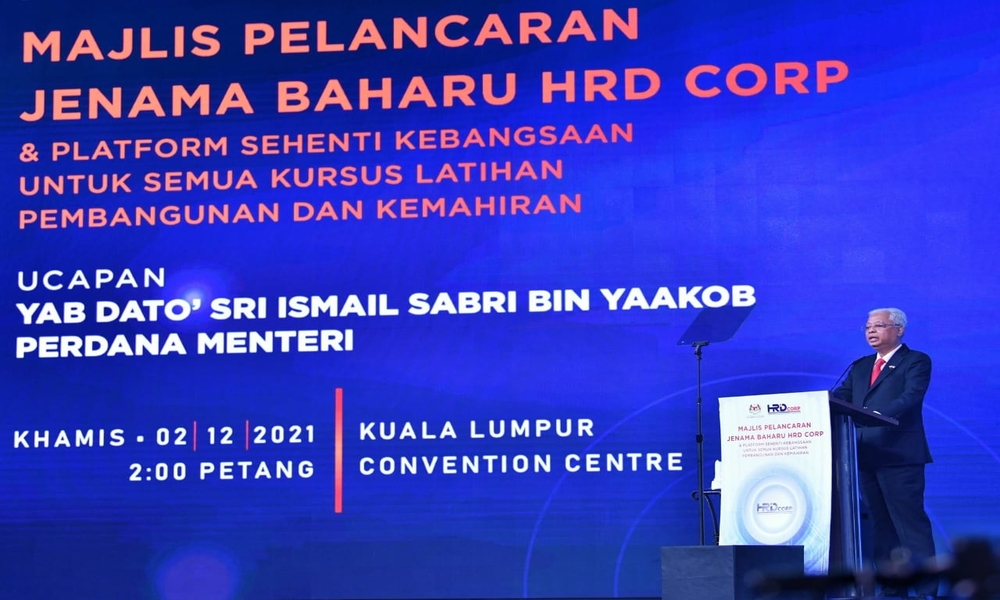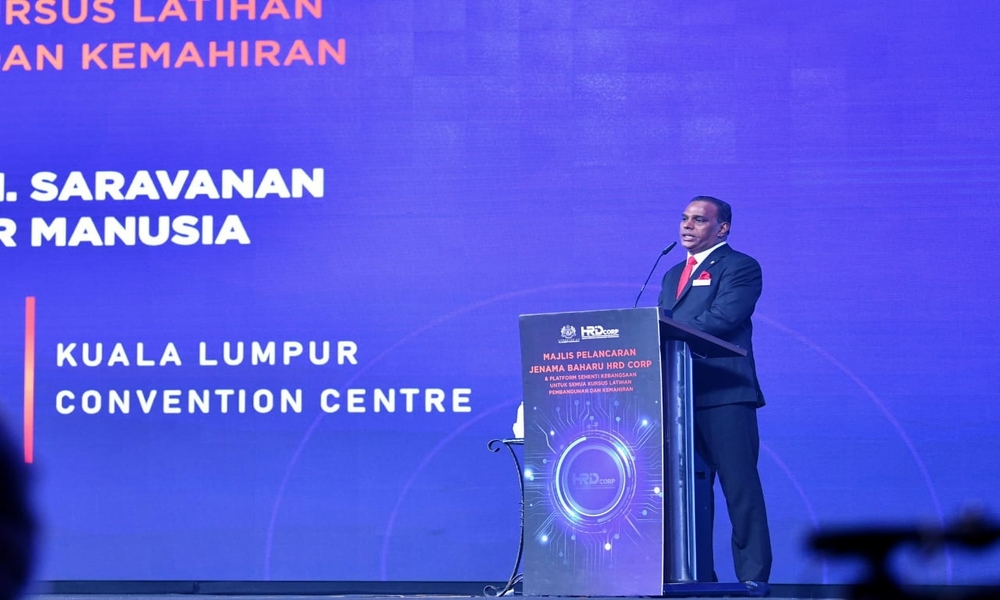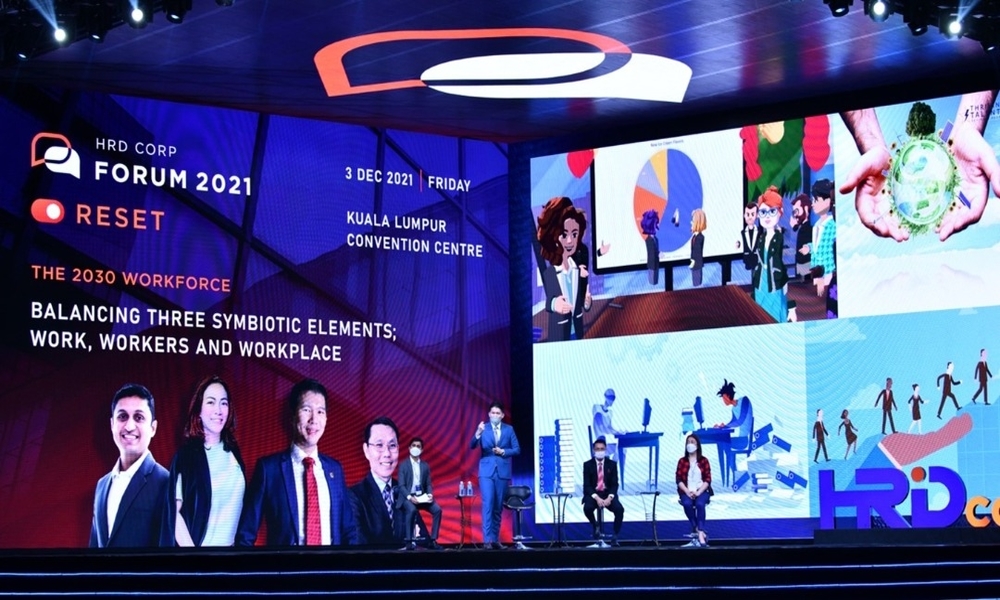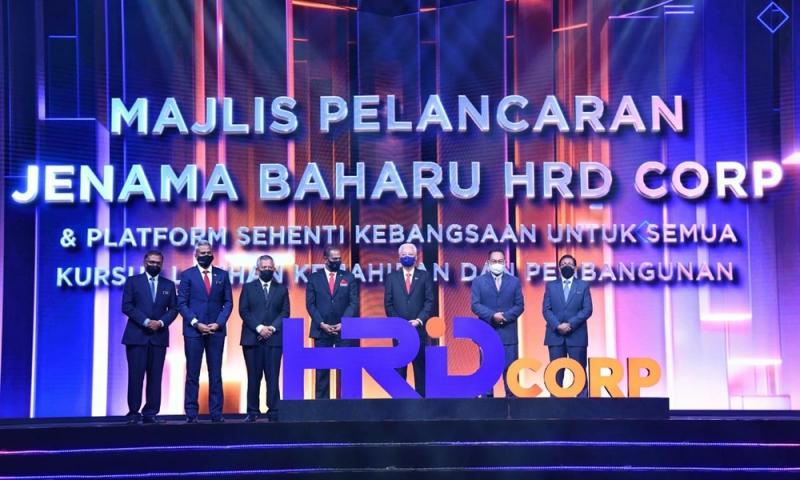HRD Corporation has now become the central agency for human resource development programmes.
Prime Minister Datuk Seri Ismail Sabri Yaakob recently announced that the newly rebranded Human Resources Development Corporation (HRD Corp) will be the central agency for all future human resource development programmes.
The name change to HRD Corp signifies a new direction for the organisation as it strives to support Malaysia’s talent development aspirations as a whole.
HRD Corp will act as the central agency in managing Upskill Malaysia, the national “single window” platform for all upskilling, re-skilling, multi-skilling and cross-skilling programmes offered and funded by various government ministries and agencies.

"Next year, the government targets to reach over a million Malaysians to visit and utilise this integrated system. As many as 5,000 courses will be offered by various ministries and government agencies, and we expect 220,000 Malaysians to secure and complete their government-funded training programmes through Upskill Malaysia next year,” said the Prime Minister.
HRD Corp, formerly known as the Human Resources Development Fund (HRDF) was established in 1993, under the purview of the Ministry of Human Resources (MOHR). It was rebranded as part of the government’s effort to enhance the agency’s role in talent development.
In the last 18 months, the agency has expanded its role to support the training and development needs of Malaysians from all walks of life.
“These include skills training and income generating programme, PENJANA HRDF which was introduced in June 2020 and has helped almost 100,000 participants through five main schemes, namely Place & Train, B40 Development, Gerak Insan Gemilang (GIG), Industrial Revolution 4.0 and SME Development,” said Datuk Seri Ismail Sabri Yaakob.
HRD Corp has also introduced free online training hub e-LATiH, which now has 154,000 registered students and an enrolment of 400,000 in more than 400 highly-skilled training courses.
According to the Prime Minister, HRD Corp has continued to strengthen its main function of collecting levies and distributing funds for skills training programmes by registered employers, having distributed almost RM420 million last year for skills training programmes involving more than 416,000 workers.
“This year, levy collections have also reached RM680 million and part of it has been used to train 500,000 workers,” he added.
A one-stop platform that simplifies the application process for skills training.

Human Resources Minister Datuk Seri M. Saravanan said the single window platform allows individuals to plan their career and record their experiences, qualifications, and professional training. Individuals can also use the platform to explore various skill training options and identify the right courses for them.
On the ministry front, he said it has helped 2.9 million employees and 300,000 companies affected by the pandemic, especially those who have lost their source of income.
We are bracing for the challenges ahead with the growing ageing population in the country. In 10 years, there will be more pensioners than employees in the younger age group. Hence, efforts must be made to ensure they are prepared when the time comes.
Among the initiatives introduced in supporting the economic recovery were online shopping platform Jana'Preneur and training and placement programmes for ex-convicts Second Chances and Opportunities for People to Excel (SCOPE). Both were launched in August and November respectively.
Promoting a culture of lifelong learning for all Malaysians

HRD Corp realises that in order to ensure the success of its expanded mandate, it also needed to encourage all Malaysians to embrace consistent and continuous personal and professional development. Therefore, following the launch event, it also organised a full-day forum titled RESET & REDEFINE which focused on leveraging learning technologies in order to enhance Malaysia’s training and development landscape. The forum was attended by over 800 participants comprising industry players, professionals, training providers and C-level executives. Key highlights during the forum included a panel discussion titled ‘The 2030 Workforce: Balancing Three Symbiotic Elements; work, Workers & Workplace’, which was moderated by Sarveen Kandiah from Open Learning Malaysia and featured speakers from Thriving Talents, Deloitte and LinkedIn.
Attendees were also treated to 11 PechaKucha presentations, the presentation format that started in Japan but have become a global phenomenon in the last decade. During the session, speakers comprising startup founders, subject matter experts and academics presented on a wide range of topics that included innovation in supply chain, AI and drone technology, new habits in media consumption and what this means for training and development, and much more.
Other topics discussed at the forum included future-proofing Malaysia’s training industry, navigating the changing learning environment and nurturing local talents with global mindsets.
RM12.50 / month
- Unlimited access to award-winning journalism
- Comment and share your opinions on all our articles
- Gift interesting stories to your friends
- Tax deductable
